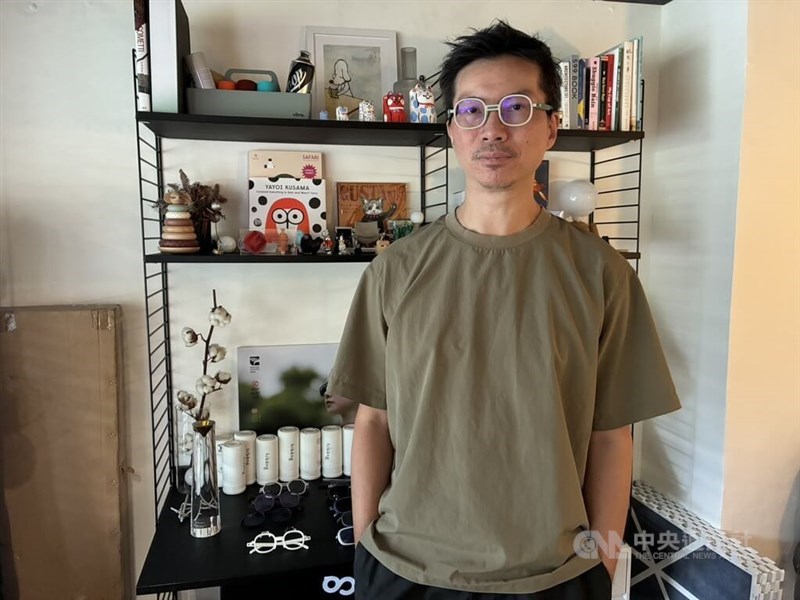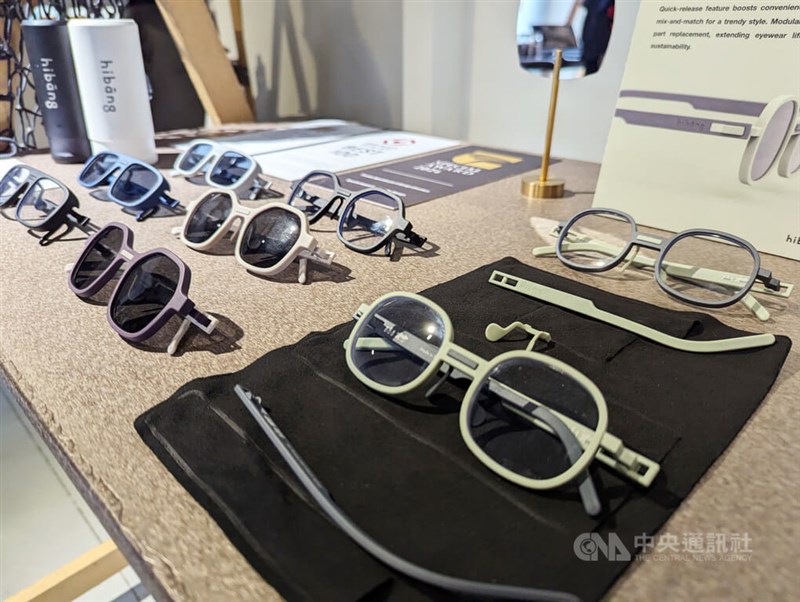
Taipei, Oct. 1 (CNA) Driven by a belief in "solving social problems through design," Ocean Ou (歐世勛) aims to turn the circular economy from a concept into everyday practice by creating products that last, can be repaired, and eventually recycled.
"In the past, environmental campaigns often relied on guilt-tripping people about the consequences of littering, or showing images of sea turtles with straws stuck in their noses. It was all about moral appeals or fines," Ou told CNA in a recent interview.
"But that approach never really solved the problem," according to Ou, who worked for a decade in laptop and smartphone design for a Taiwanese company.
That realization led Ou to embrace the idea of a circular economy - the sharing, leasing, reusing, repairing and recycling of existing materials and products as long as possible to minimize waste.
In 2020, he co-founded Duolog Design, a company dedicated to applying design thinking to sustainability.
One of his latest creations - eyewear made from recycled fishing nets - illustrates how Ou seeks to demonstrate the commercial viability of the circular economy.

The idea emerged after Ou learned that fishing nets had been used to make sunglasses in Taiwan under a 2017 project by a government-affiliated institution.
Yet, despite being a major fishing nation, Taiwan does not generally recycle such nets, Ou said.
Ou reached out to a recycling operator and an eyewear manufacturer, who shared his vision, recognizing the growing demand for circular-economy products, particularly in European markets where sustainability is a key priority.
Now in its second version, the glasses have replaced metal screws from the first generation with latches, allowing users to easily swap parts such as nose pads and temples to extend their lifespan, Ou said.
He recalled that the team experimented with numerous 3D-printed designs to avoid a "cartoonish" look and ultimately arrived at the ideal material formula after countless trials to increase the nylon's hardness.
Named "Hibang," a phonetic echo of the Taiwanese for both "fishing nets" and "hope," the eyewear was one of six winners of the Certified Sustainable Eyewear (CSE) Award at the prestigious MIDO Awards 2025.
Ou said he hopes for a future in which promoting "eco-consciousness" will not be necessary.
"Once all products are designed with circular thinking, there will be no need to label them as 'environmentally friendly.'"
-
Culture
Czech author reflects on cultural erasure under authoritarian rule
02/22/2026 04:35 PM -
Society
Nantou forest fire contained after 7 days; cause under investigation
02/22/2026 01:39 PM -
Culture
Director Tsou Shih-ching challenges gender norms in 'Left-Handed Girl'
02/22/2026 11:04 AM -
Society
Taiwan headline news
02/22/2026 09:43 AM -
Society
Highs of 25-30°C and sun forecast for Taiwan Sunday
02/21/2026 07:22 PM